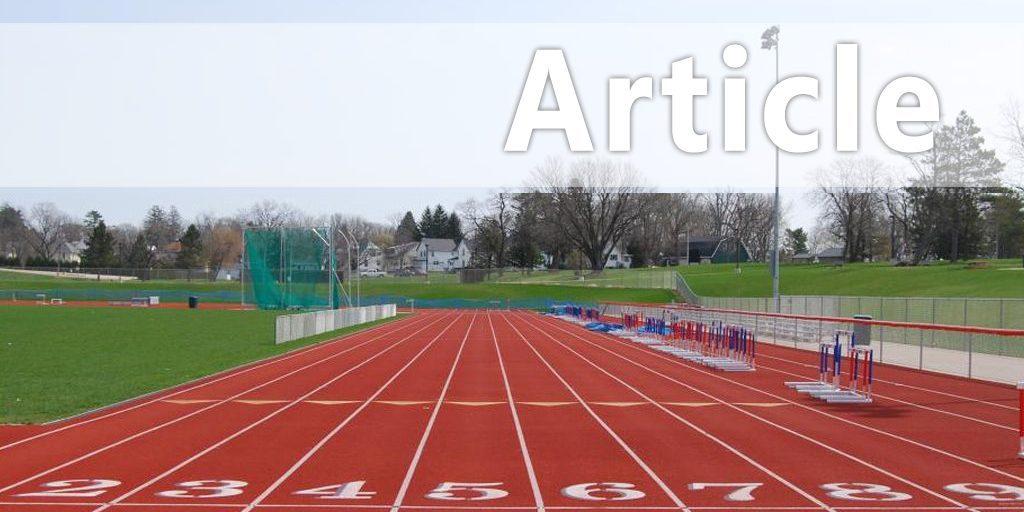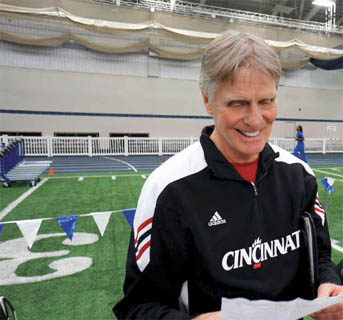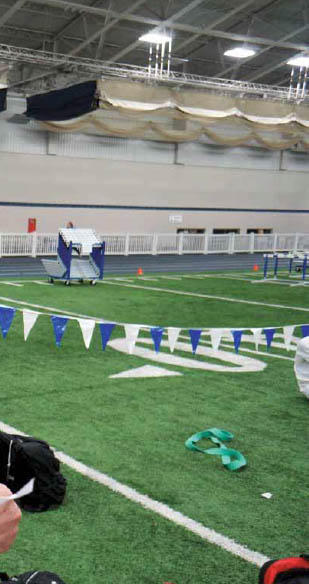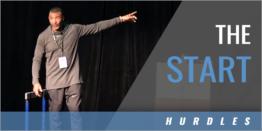|
Relationship Between High School
Originally Published in Techniques Magazine – Official Publication of the USTFCCCA
At times the relationship is terrific; the admiration is high with the results soaring. That scenario usually exists when the high school coach and the college coach have the following relationships:
When relationships break down, it is usually spearheaded by misconceptions. Let's try to put things in perspective. Is a fourth grade teaching position better than a first grade job because the fourth graders will always outperform the first graders in every measurable category? If your answer is "yes" then you assume the college coach is better and more important than his high school counterpart. In reality, coaching is coaching. Having been a grade school teacher for one year, a high school teacher/coach for seven years and a college coach for 38 years, I have benefited from the advantages of all levels. When you work with younger athletes, you are more important in their lives because you meet them in their formative years, consequently making a greater lifelong difference. You usually know their parents and families You are part of their school and larger community. You teach them the sport for the first time, using that clean canvas to create an early masterpiece. You take them to places they have never been. Frequently you are their father or mother figure. The high school coach plays a more critical role in the development of the athlete as well as the person, seldom duplicated no matter how skilled the college coach. For these reasons the high school coach is the more memorable, much like the first grade teacher because she was your first teacher.
Both categories of coaches need each other but their relationship is full of land mines which can be avoided if the following are true:
At their best, both coaches will remember the excitement of their first days of coaching and why they got started. The high school coach should try to pass his students on to the best coach and person, not simply to the most prestigious university. The college coach needs friends in the high school ranks, especially in these days of negative recruiting. In our sports, the need is great to respect and benefit from each other. As Benjamin Franklin once said, "if we do not hang together, we shall surely hang separately." The ideal symbiotic relationship previously referred to can be achieved with a spirit of cooperation between the high school and college coaches. If each coach would walk in the other's shoes or at least attempt to from time to time, then their relationship should be outstanding. Not only will that expand each coach's personal network but will also best serve their common athletes. The high school coach has a golden opportunity to reach out to the college coach because his collegiate counterpart has a built-in interest in the high school athlete, the life-blood in building his team. No high school coach needs to incorporate all of these suggestions, but should be active in some of these ways. It will only help.
Help to place your students where they need to be, obligating you to be well informed. In doing so, don't allow bias to stand in the way of a natural fit for your athletes. The college coach can bask in the status of his position much like the fashion model who smugly expects lots of attention, or he can reach out to his high school counterparts as a peer, much like the person who is pretty both inside and out. The latter type of coach not only serves himself and his team, but is highly regarded at the high school level, receiving commendations which he seldom hears but which occur nonetheless. He can do some or all of the following:
If all of these suggestions appear to be too much to handle, plan on doing one per year which is still one more than many coaches do. After several years you will discover what is possible and also what you enjoy. Any time taken from your primary job appears at first to be time poorly spent, but upon further review you will discover that you have enriched your life by reaching out to others. Just as the best athlete cannot be contained in just one sport or one event, the top coaches cannot be defined by just fulfilling their job description and nothing more. By putting their athletes first, all coaches will discover they are not only better coaches but will live a much fuller coaching life. Most of all, it will be more fun. BIO
|



 The relationship between high school and college coaches ideally is a symbiotic one in which each helps the other for the advancement of their common athletes. We are all doing the same job but with different employers and different aged athletes. We very much need to be supportive of each other for the benefit of our sport.
The relationship between high school and college coaches ideally is a symbiotic one in which each helps the other for the advancement of their common athletes. We are all doing the same job but with different employers and different aged athletes. We very much need to be supportive of each other for the benefit of our sport. College coaches work with athletes at a higher level and can usually point to lifetime PRs being set under their watch. The coach-athlete relationship is almost always more mature resulting in a higher level of dialogue. The stakes are higher so the peaks and valleys are greater. The college coach usually has the luxury of coaching as a full-time job. The college athlete tends to have more serious teammates and better training groups. The college coach has a larger pulpit with the opportunity to make a bigger splash. The college coach is usually the student's final coach and in that respect is the more memorable, valued for his work at the pinnacle of an athlete's career.
College coaches work with athletes at a higher level and can usually point to lifetime PRs being set under their watch. The coach-athlete relationship is almost always more mature resulting in a higher level of dialogue. The stakes are higher so the peaks and valleys are greater. The college coach usually has the luxury of coaching as a full-time job. The college athlete tends to have more serious teammates and better training groups. The college coach has a larger pulpit with the opportunity to make a bigger splash. The college coach is usually the student's final coach and in that respect is the more memorable, valued for his work at the pinnacle of an athlete's career.


